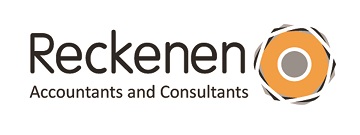Definition of Intrinsic Value in Virginia
In Virginia, Intrinsic Value is the standard of value used for the purposes of equitable distribution in divorce proceedings. According to the International Glossary of Business Valuation Terms, Intrinsic Value is defined as:
the value that an investor considers, on the basis of an evaluation or available facts, to be the “true” or “real” value that will become the market value when other investors reach the same conclusion.
Court of Appeals of Virginia has defined intrinsic value in two of its most significant published opinions i.e. Bosserman v. Bosserman, Virginia Court of Appeals, Published, No. 0500-88-3, and Howell v. Howell, Virginia Court of Appeals, Published, No 2800-98-2.
In Bosserman v. Bosserman, Court of Appeals of Virginia set the standard of Intrinsic value to be followed in Virginia by stating:
Trial courts valuing marital property for the purpose of making a monetary award must determine from the evidence that value which represents the property’s intrinsic worth to the parties upon dissolution of the marriage.
In Howell v. Howell, Court of Appeals of Virginia further clarified what the term intrinsic value means:
Intrinsic value is a very subjective concept that looks to the worth of the property to the parties. The methods of valuation must take into consideration the parties themselves and the different situations in which they exist…Commonly, one party will continue to enjoy the benefits of the property, while the other will relinquish all future benefits. Still, its intrinsic value must be translated into a monetary amount. The parties must rely on accepted methods of valuation, but the particular method of valuing, and the precise application of that method to the singular facts of the case must vary with the myriad situations that exist between married couples.
From the above quotes and definition, it is clear that in using an Intrinsic Value standard, the Court of Appeals of Virginia intends the trial courts to find the “true” or “real” worth of the property to the party which will continue to enjoy the benefits of the property.
Discussion of Fair Market Value and Fair Value standards
The two more typical standards of value used by states in divorce settings are Fair Market Value and Fair Value.
Fair Market Value Defined
IRS defined Fair Market Value in Section 20.2031-1(b) of the Estate Tax Regulations (section 81.10 of the Estate Tax Regulations 105) and section 25.2512-1 of the Gift Tax Regulations (section 86.19 of Gift Tax Regulations 108) as:
price at which the property would change hands between a willing buyer and a willing seller when the former is not under any compulsion to buy and the latter is not under any compulsion to sell, both parties having reasonable knowledge of relevant facts.
Court decisions frequently state in addition that the hypothetical buyer and seller are assumed to be able, as well as willing, to trade and to be well informed about the property and concerning the market for such property.
Fair Value Defined
Fair Value is a term – defined by statute or case law – that may be used in valuing business interests in shareholder disputes or in equitable distribution cases. In many states, fair value is defined as a shareholder’s proportionate share of the fair market value of a company, without any discounts for lack of control (DLOC) or lack of marketability (DLOM).
Discussion of Levels of Value
Business valuation experts are familiar with the three conceptual levels of value:
- Controlling Interest Basis
- Marketable Minority Interest Basis
- Non-Marketable Minority Interest Basis
Controlling Interest Basis
On a controlling interest basis, the value of a shareholder’s interest is its proportional share of the total value of a company. The total value of the company represents pricing as if the entire company is sold. This price typically includes a control premium or premium for being able to make strategic, financial, and managerial decisions.
Marketable Minority Interest Basis
On a marketable minority interest basis, the value of a shareholder’s interest represents pricing as if a non-controlling interest in the company is sold. Typically, a discount for lack of control (DLOC) is applied to the value of the company’s shares on a controlling basis in order to arrive at the pricing on a marketable minority basis. DLOC is applied because minority shareholders are unable to make strategic, financial, and managerial decisions for the company. Also, minority interest shareholders are typically unable to influence dividend distributions.
Non-Marketable Minority Interest Basis
Conceptually, this value represents the value of il-liquid (i.e. non-marketable) minority interest of a company that lacks active markets for its shares. A discount for lack of marketability (DLOM) is applied to the Marketable Minority Interest value in order to arrive at non-marketable minority interest.
Intrinsic Value Standard is essentially Fair Market Value on a Controlling Interest Basis
In Virginia, none of the precedent cases provide any discussion of the level of value. However, a reading of the precedent cases[1] in Virginia would suggest that there is a prohibition against the application of discounts for lack of control (DLOC) and discounts for lack of marketability (DLOM). Based on this prohibition, it can be concluded that Virginia’s intrinsic value standard represents the value of a company on a controlling interest basis. Further, the Fair Value on a controlling interest basis (without discounts for lack of control and marketability) is essentially the same as the Fair Market Value on a Controlling Interest Basis.
Based on the above my conclusion is that Virginia’s Intrinsic Value standard is essentially the same as the Fair Market Value on a Controlling Interest Basis. My conclusion is shared by Chris Mercer in his blog post on this subject. This conclusion is further supported by the fact that the Court of Appeals of Virginia has cited IRS Revenue Ruling 59-60, which is based on a Fair Market Value Standard, in several of its rulings including Bosserman v. Bosserman and Collins v. Collins.
Which methods are appropriate to arrive at the Intrinsic Value (or Fair Market Value on a Controlling Interest Basis)?
In Howell v. Howell, Court of Appeals of Virginia stated:
Still, its intrinsic value must be translated into a monetary amount. The parties must rely on accepted methods of valuation, but the particular method of valuing, and the precise application of that method to the singular facts of the case must vary with the myriad situations that exist between married couples.
It is well recognized amongst the valuation community that the accepted methods of valuation fall into three categories:
Income Approach
The income approach is defined in the International Glossary of Business Valuation Terms as, “A general way of determining a value indication of a business, business ownership interest, security, or intangible asset using one or more methods that convert anticipated economic benefits into a present single amount.” Revenue Ruling 59-60 clearly requires that an income approach be used when it lists “the earning capacity of the company,” as a factor to be considered.
Market Approach
The market approach is defined in the International Glossary of Business Valuation Terms as, “A general way of determining a value indication of a business, business ownership interest, security, or intangible asset by using one or more methods that compare the subject to similar businesses, business ownership interests, securities, or intangible assets that have been sold.
Asset Approach
The asset approach is defined in the International Glossary of Business Valuation Terms as, “a general way of determining a value indication of a business, business ownership interest, or security using one or more methods based on the value of the assets net of liabilities. IRS Revenue Ruling 59-60 states the following “Generally, greater weight will be given to earnings factors for those companies that sell products or services, and to asset values for investment or holding companies”.
A study of the various ruling of Virginia Appellate Courts reveals that the Courts have generally adhered to the recommendations of IRS Revenue Ruling 59-60 in approving acceptable methods of valuation. Below is a listing of prominent cases and the methods that were approved by the appellate courts in Virginia.
- Bosserman v. Bosserman: Asset approach was approved because the company in question was a real estate holding company and not a business that sells products and services.
- Russell v. Russell: Income approach was approved for a medical practice, a services business.
- Howell v. Howell: Income approach was approved for a law practice, a services business.
- Hoebelheinrich v. Hoebelheinrich: Income approach was approved for a medical practice, a services business.
- Wright v.Wright: Income approach was approved for a law practice, a services business.
Conclusion
While it is hard for a business appraiser to “take into consideration the parties themselves and the different situations in which they exist”, it can be concluded from the above analysis that a business appraiser can rely on the factors listed in IRS Revenue Ruling 59-60 in determining an appropriate method in order to arrive at the intrinsic value of a business under equitable distribution in Virginia.
Footnotes:
[1] In Howell v. Howell, Court of Appeals of Virginia stated “To that figure, the expert applied a discount of 40% for lack of marketability and 30% for minority status. That reduced the market value of the husband’s interest to $105,177. The trial court rejected the husband’s reasoning for discounting for minority status and marketability. It found the discounts inappropriate because no transfer of the partnership interest was foreseeable and no one in the firm, nor any group within it, exercised majority control. . .. We conclude that the trial court did not err in selecting the method of valuation or in the application of it to the facts presented in this case. The wife’s valuation of the husband’s interest in his law firm was supported by substantial and competent evidence.

